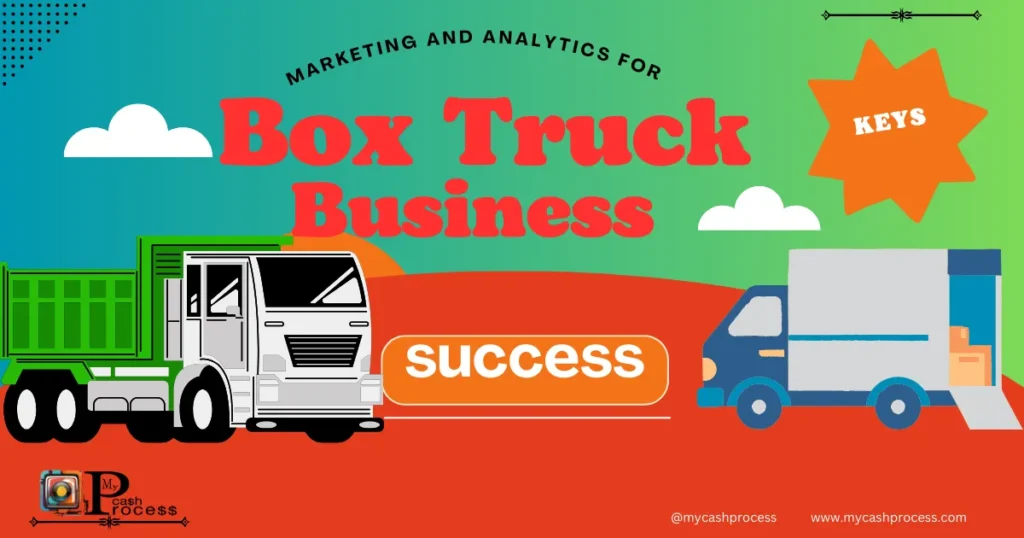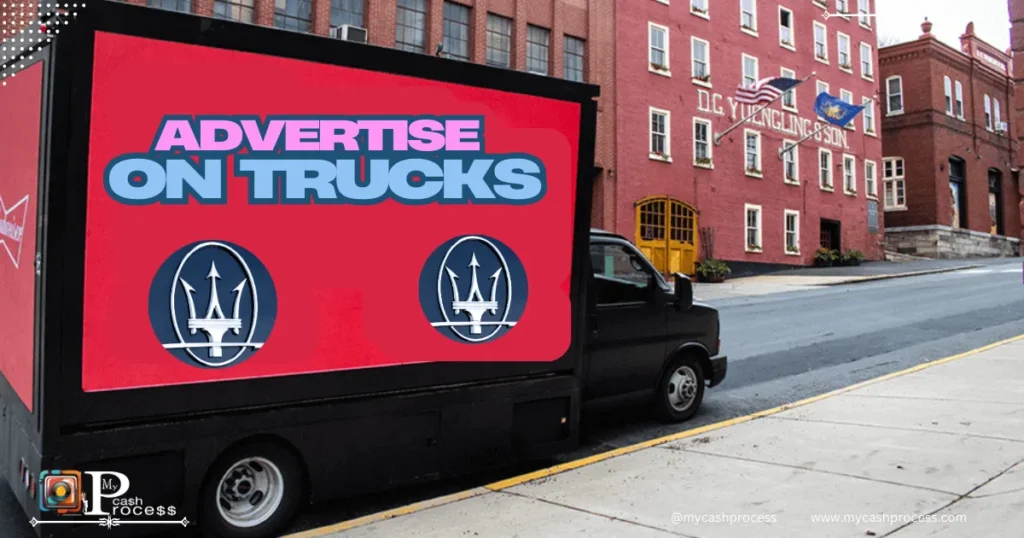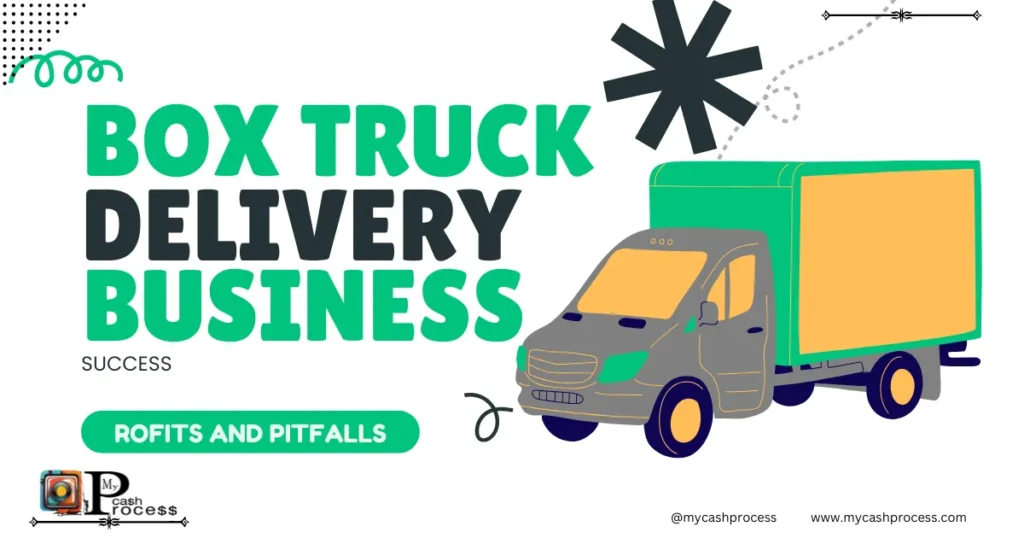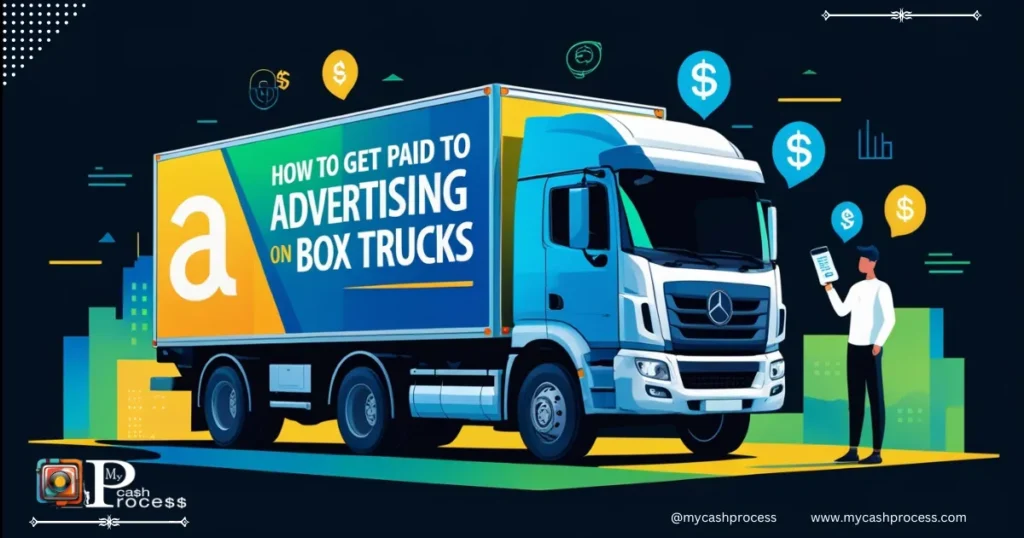Introduction
The box truck business is rapidly emerging as one of the most profitable opportunities in the logistics and transportation sectors. As consumer demand for quick deliveries and efficient logistics increases, entrepreneurs are eyeing this venture as a reliable source of income. But, is the box truck business profitable in 2025? This comprehensive guide explores how you can start, manage, and grow a successful box truck business, while providing actionable insights into essential strategies, financial planning, and industry trends.
Quick Access Guide
Overview of the Box Truck Business Industry
The logistics industry is experiencing exponential growth, with the box truck delivery business playing a critical role in last-mile delivery and freight movement. From retail goods to perishable items, box truck businesses cater to a wide array of customer needs.
Importance of Starting a Box Truck Business in 2025
In 2025, the box truck business remains a lucrative venture due to the sustained growth in e-commerce, increased reliance on delivery services, and demand for advertising on moving vehicles. With proper planning and strategic marketing, entrepreneurs can establish a steady income stream while contributing to a growing sector.
Highlight the Focus Keyword: Box Truck Business
This guide emphasizes actionable steps for succeeding in the box truck business industry, ensuring profitability and sustainability. It also explores secondary keywords like is box truck business profitable, box truck delivery business, advertise on trucks, what can you do with a box truck, and get paid to advertise on box truck to provide a holistic overview of the industry.
What is a Box Truck Business?
Definition and Explanation
A box truck business involves the use of medium-sized vehicles, also known as cube vans or straight trucks, to transport goods or provide specialized services. These trucks feature a secure, enclosed cargo area, making them ideal for carrying fragile, temperature-sensitive, or high-value items.
Overview of Common Uses
The versatility of a box truck business allows entrepreneurs to serve diverse industries. Common applications include:
- Retail Deliveries: Transporting goods to retail stores or directly to customers.
- Moving Services: Assisting individuals or businesses with relocation needs.
- Courier Services: Providing quick and reliable delivery for small packages.
- Specialized Logistics: Handling niche markets like refrigerated goods or oversized items.
- Advertising Opportunities: Using trucks as mobile billboards to advertise on trucks for additional revenue.
Is Box Truck Business Profitable?
Is Box Truck Business Profitable? Discuss Profitability Factors
The box truck business can be highly profitable if managed effectively. Several factors influence profitability:
- High Demand: Increased e-commerce sales have created a sustained need for reliable delivery services.
- Low Competition in Niche Markets: Offering specialized services like refrigerated deliveries can reduce competition.
- Advertising Opportunities: Truck owners can earn passive income by advertising on trucks for local or national brands.
Key Challenges and Opportunities
Despite its profitability, the box truck business comes with challenges:
Challenges:
- High Operating Costs: Fuel, maintenance, and insurance expenses can impact margins.
- Regulatory Compliance: Navigating permits and licenses requires due diligence.
- Competition: Larger logistics companies may dominate the market in some areas.
Opportunities:
- Partnerships with E-commerce Companies: Collaborate with online retailers for consistent delivery contracts.
- Niche Specialization: Focus on underserved markets like antique furniture transportation or medical supplies.
What can you do with a box truck?
Steps to Start a Box Truck Business
Register Your Business and Obtain Necessary Permits
Start by choosing a business name and structure, such as an LLC or corporation, to protect personal assets. Obtain necessary permits, including:
- USDOT Number: Required for interstate operations.
- State-Specific Licenses: Verify local regulations for compliance.
- Insurance: Comprehensive policies covering liability, cargo, and vehicle protection.
Purchase or Lease a Box Truck
Evaluate your budget to determine whether to purchase or lease a truck. Key considerations include:
- New vs. Used Trucks: New trucks have lower maintenance costs but higher upfront expenses.
- Fuel Efficiency: Opt for fuel-efficient models to reduce operational costs.
Choose a Niche or Service Focus
Identifying a niche enhances your competitive advantage. Examples include:
- Last-Mile Delivery: Serving local e-commerce needs.
- Specialized Moving Services: Catering to businesses relocating offices or stores.
- Advertising Partnerships: Offering your truck’s exterior as space to advertise on trucks.
Profitable Ideas for a Box Truck Business
Highlight Services Like Moving, Delivery, and Logistics
The box truck business provides ample opportunities to generate revenue. Profitable ideas include:
Moving Services
Residential and commercial moving services are a staple of the industry. Offering flexible schedules and competitive rates can attract a loyal customer base.
Freight Delivery
Partnering with logistics companies to provide regional delivery solutions ensures consistent work.
Refrigerated Deliveries
Invest in trucks with refrigeration capabilities to serve the food and pharmaceutical sectors.
What Can You Do with a Box Truck?
Explore additional applications to maximize income:
- Mobile Storage Units: Rent your truck as temporary storage for events or construction sites.
- Event Transportation: Assist in delivering equipment for concerts or festivals.
- Advertising Space: Get paid to advertise on box truck exteriors.
What can you do with a box truck?
Box Truck Delivery Business: Setting It Up
Establishing a box truck delivery business involves meticulous planning and strategic execution. This section delves into the essential tools, equipment, logistics, and tips necessary to create a thriving delivery operation.
Necessary Tools and Equipment
To ensure smooth operations in your box truck delivery business, investing in the right tools and equipment is paramount. Here are the essentials:
Equipment Checklist
- Box Truck: Depending on your budget and niche, you can purchase or lease a truck. Ensure it meets size and weight requirements for your service type.
- GPS and Routing Software: Tools like Google Maps or specialized logistics software can optimize delivery routes and save fuel costs.
- Loading Ramps and Dollies: Essential for safe and efficient loading/unloading, especially for heavy goods.
- Cargo Straps and Blankets: Protect goods during transit and prevent damage.
- Two-Way Radios or Communication Tools: Ensure constant communication between drivers and dispatch.
Vehicle Maintenance Essentials
Regular maintenance is crucial to avoid breakdowns. Equip your box truck delivery business vehicles with:
- Spare tires.
- Toolkits for minor repairs.
- Emergency kits for unforeseen circumstances.
Logistics and Route Planning Tips
Efficient logistics and route planning are critical to success in the box truck delivery business. Here are actionable tips:
Route Optimization
- Use Technology: Utilize routing software like Route4Me or Circuit to identify the most efficient routes.
- Plan Ahead: Schedule deliveries to avoid peak traffic hours.
Load Management
- Prioritize Deliveries: Arrange goods in the order of delivery to minimize unloading time.
- Weigh and Balance: Ensure proper weight distribution to maintain vehicle stability.
Delivery Scheduling
- Flexible Timings: Offer multiple delivery slots to accommodate customer needs.
- Track Deliveries: Implement tracking systems to keep customers informed about their package status.
Customer Service Best Practices
Delivering exceptional customer service can set your box truck delivery business apart:
- On-Time Deliveries: Build trust by adhering to promised timelines.
- Professional Drivers: Train drivers in communication and customer handling.
- Feedback Mechanisms: Encourage customers to provide reviews to improve service quality.
Advertising and Marketing for Box Truck Businesses
Promoting your box truck business is vital to attract clients and establish your brand. A combination of online and offline strategies ensures a wider reach.
Effective Ways to Promote Your Services
Offline Marketing Strategies
- Advertise on Trucks: Utilize your truck as a mobile billboard. Eye-catching graphics and contact information on your truck can attract attention.
- Networking: Partner with local businesses to offer delivery services.
- Flyers and Brochures: Distribute promotional materials in high-traffic areas.
Online Marketing Strategies
- Social Media Marketing: Platforms like Facebook and Instagram can help target local audiences. Share updates, customer testimonials, and special offers.
- Search Engine Optimization (SEO): Optimize your website with keywords like box truck business and box truck delivery business to rank higher in search results.
- Paid Ads: Use Google Ads to appear in relevant searches like “box truck delivery near me.”
Highlighting Online and Offline Advertising Methods
Combining online and offline strategies creates a comprehensive marketing approach:
- Online Ads: Boost visibility through PPC campaigns targeting specific regions.
- Offline Visibility: Promote your services by showcasing your advertise on trucks strategy at events or trade fairs.
Is Box Truck Business Profitable?
How to Get Paid to Advertise on Box Trucks
Turning your box truck business into a mobile advertising platform can generate additional revenue streams. Here’s how:
Overview of Truck Advertising Programs
Truck advertising programs allow businesses to display their ads on your vehicle, turning it into a moving billboard.
Popular Programs
- Wrapify: Pays drivers based on mileage and visibility.
- Carvertise: Matches businesses with drivers willing to advertise.
- Local Advertising Agencies: Partner with agencies that manage truck advertising campaigns.
Steps to Partner with Advertisers
- Prepare Your Box Truck: Ensure your vehicle is in excellent condition and visible.
- Register with Advertising Platforms: Sign up with platforms like Wrapify or Carvertise.
- Negotiate Rates: Determine pricing based on mileage, region, and ad visibility.
- Install Advertisements: Work with professionals to wrap your truck with the ads.
- Track Mileage and Visibility: Provide advertisers with metrics to demonstrate campaign effectiveness.
Additional Income Opportunities
- Exclusive Advertising Contracts: Offer advertisers exclusive rights to advertise on your truck.
- Collaborations with Local Businesses: Promote nearby businesses while running deliveries.
Get paid to advertise on box truck
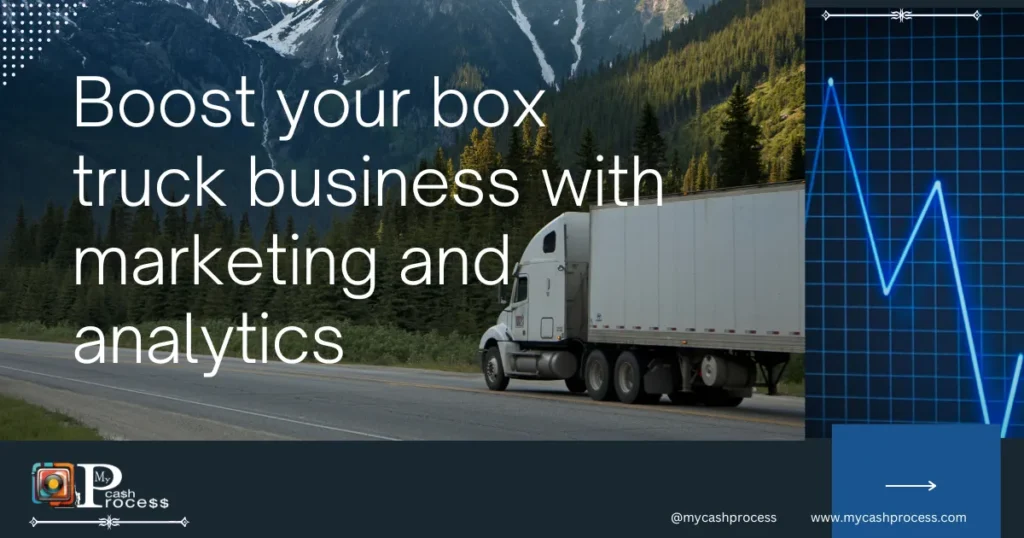
Financial Planning for Your Box Truck Business
Sound financial planning is the cornerstone of a successful box truck business. This section explores start-up costs, ongoing expenses, and profit maximization strategies.
Start-Up Costs
Starting a box truck business involves several upfront investments:
Initial Investments
| Expense | Estimated Cost |
|---|---|
| Box Truck Purchase | $30,000 – $50,000 |
| Licensing and Permits | $500 – $2,000 |
| Equipment and Tools | $2,000 – $5,000 |
| Insurance | $2,000 – $5,000/year |
| Marketing and Branding | $1,000 – $3,000 |
Ongoing Expenses
| Expense | Estimated Monthly Cost |
| Fuel | $500 – $1,500 |
| Maintenance | $300 – $700 |
| Driver Salaries | $3,000 – $5,000 |
| Advertising | $500 – $1,000 |
Tips for Managing Cash Flow and Maximizing Profit
- Track Expenses: Use accounting software to monitor spending.
- Negotiate Contracts: Secure long-term contracts with clients for consistent income.
- Optimize Routes: Reduce fuel costs by planning efficient delivery routes.
Future Trends in Box Truck Businesses
Staying ahead of emerging trends can position your box truck business for long-term success. Here are key trends to watch:
Emerging Trends in Logistics and Delivery
- Electric Box Trucks: Eco-friendly vehicles are becoming a popular choice for sustainable businesses.
- AI-Powered Logistics: Advanced algorithms optimize routes and predict delivery times.
- Last-Mile Delivery Services: Increased demand for quick and efficient last-mile solutions.
Opportunities for Innovation in the Industry
- On-Demand Delivery Apps: Develop a mobile app to connect with customers directly.
- Collaborative Networks: Partner with other businesses for shared logistics solutions.
- Diversified Services: Expand into niche markets like refrigerated goods or oversized item deliveries.
Case Studies: Successful Box Truck Business Stories
Learning from real-life examples can provide valuable insights. Here are two inspiring stories:
Case Study 1: Local Moving Specialist
- Challenge: Competing with established movers.
- Solution: Specialized in short-distance residential moves, emphasizing affordability and speed.
- Outcome: Grew from a single truck operation to a fleet serving an entire region.
Case Study 2: Eco-Friendly Delivery
- Challenge: High fuel costs.
- Solution: Transitioned to electric box trucks and marketed as an eco-friendly delivery option.
- Outcome: Attracted environmentally conscious clients and reduced operating costs.
Leveraging Technology in Box Truck Businesses
Modern Technology for Enhanced Operations
Technology has become a cornerstone for efficient business operations, and the box truck business is no exception. Tools like GPS tracking systems, route optimization software, and real-time fleet management platforms can streamline delivery operations and reduce overhead costs. By integrating these technologies, you can ensure timely deliveries, minimize fuel consumption, and enhance customer satisfaction
The Role of Mobile Apps
Mobile applications designed specifically for the logistics industry offer incredible advantages. From apps that manage delivery schedules to ones that enable digital invoicing, these tools make operations seamless. Drivers can also benefit from mobile apps providing real-time traffic updates, maintenance alerts, and instant communication with dispatch centers.
E-commerce Partnerships
Collaborating with e-commerce platforms to integrate technology-driven delivery systems can open new revenue streams. These partnerships not only boost business opportunities but also enhance operational efficiency, given the reliance of e-commerce on logistics solutions.
Sustainability in the Box Truck Industry
Green Logistics: A Growing Trend
The demand for eco-friendly business practices is reshaping industries, including logistics. Box truck businesses can adopt sustainable measures such as using fuel-efficient vehicles or transitioning to electric box trucks. These eco-conscious choices appeal to environmentally aware customers and reduce long-term operational costs.
Recycling and Reusing Materials
Incorporating recycling and sustainable packing materials into your operations adds value to your service. Whether it’s reusing pallets or adopting biodegradable packaging, these small steps create a significant impact on your environmental footprint.
Government Incentives for Green Practices
Governments worldwide offer tax credits and incentives for businesses implementing green practices. Box truck operators can explore these programs to offset the cost of transitioning to sustainable practices while staying competitive in the market.
Is Box Truck Business Profitable?
Building a Strong Team for Your Box Truck Business
The Importance of Skilled Drivers
Drivers are the backbone of a box truck business. Hiring skilled and reliable drivers ensures efficient operations and minimizes risks. Consider offering training programs to improve their driving skills and customer service capabilities.
Operational Support Staff
Behind-the-scenes support is equally crucial. Employing logistics coordinators, maintenance staff, and customer service representatives ensures smooth day-to-day operations. A well-rounded team helps address challenges promptly and maintain high service standards.
Creating a Positive Work Culture
Fostering a positive work environment attracts talent and ensures employee retention. Providing competitive salaries, health benefits, and growth opportunities encourages a motivated and dedicated workforce. Additionally, regular team-building activities can strengthen camaraderie and boost morale.
Box Truck Maintenance: Ensuring Longevity and Efficiency
Maintaining a box truck is crucial to keeping your business running smoothly and ensuring profitability. Regular maintenance not only enhances the lifespan of your vehicle but also ensures it remains operational for daily deliveries and services. Here are key maintenance tasks that you should regularly perform:
- Engine and Transmission Checks: A healthy engine is the heart of your box truck. Regular oil changes, checking coolant levels, and monitoring the transmission system are vital to preventing costly breakdowns and maintaining smooth operations.
- Brake System Inspection: The brake system of your box truck should be inspected regularly to ensure safety. Worn-out brake pads, low brake fluid levels, or issues with the brake lines can affect performance and cause dangerous delays.
- Tire Care: Tires are a critical element for safe delivery operations. Ensure they are rotated regularly, maintain proper inflation, and check for any wear or damage. Tire management can also help improve fuel efficiency.
- Lighting and Electrical Systems: Ensuring that the lighting system works properly is essential for visibility during night deliveries or adverse weather conditions. Regularly check headlights, brake lights, and turn signals to ensure all are functioning.
- Cleaning and Upkeep: Keeping the interior and exterior of your box truck clean is important for the overall maintenance of the vehicle and for creating a professional impression with clients. Cleaning also prevents wear on the body of the truck, preventing rust or other damage from dirt buildup.
Proper maintenance helps reduce the risk of downtime and ensures you’re delivering goods on time, enhancing customer satisfaction. An effective maintenance schedule will save you money in the long term and protect your business investment.
Optimizing Box Truck Operations for Increased Efficiency
Once your box truck business is up and running, the next step is to optimize operations for maximum efficiency. Streamlining processes, minimizing delays, and improving service delivery can significantly increase profitability and customer satisfaction. Consider these strategies:
- Route Optimization: Using software or apps for route planning can drastically reduce fuel consumption and delivery time. These tools help identify the fastest or least congested routes, saving on fuel and improving delivery times. Integrating real-time traffic data also enables drivers to adapt to road conditions, avoiding potential delays.
- Load Management: Efficiently organizing your truck’s cargo space is key to optimizing each delivery. Proper load distribution ensures you maximize capacity, avoid damaging goods, and reduce fuel consumption by ensuring the truck is not overloaded. Additionally, organizing items based on delivery routes can help reduce handling time.
- Scheduling Deliveries: Establishing a robust scheduling system is crucial to ensure timely deliveries and avoid missed appointments. Use software that allows you to track deliveries, communicate with customers about estimated times of arrival, and make adjustments on the fly if necessary. This system also helps improve customer service by keeping them informed.
- Employee Training: For those who hire additional drivers or staff, providing them with proper training is vital for operational efficiency. Training should cover everything from route planning and load management to safety protocols and customer service. Well-trained employees are more productive and capable of handling unexpected issues, contributing to the overall success of your business.
By focusing on these operational elements, you can create a more streamlined and efficient business model that enhances your profitability while ensuring quality service to your customers.
Conclusion
Embarking on a box truck business journey offers immense potential, provided you approach it with careful planning and execution.
Warning
Beware of these common pitfalls:
- Underestimating Costs: Ensure you budget for both start-up and ongoing expenses.
- Ignoring Regulations: Stay compliant with local and federal laws to avoid fines.
Follow us on Pinterest, Twitter X, Facebook, Instagram, Quora, TikTok, Discord, YouTube, and WhatsApp Channel.
Advice
To stay competitive:
- Invest in technology to streamline operations.
- Focus on customer satisfaction to build a loyal client base.
- Monitor industry trends to adapt to changing market demands.
FAQs
-
Q: Is the box truck business profitable?
A: Yes, with strategic planning, efficient operations, and effective marketing, it can be highly profitable.
-
Q: What can you do with a box truck?
A: Box trucks are versatile and can be used for moving services, deliveries, mobile advertising, and more.
-
Q: How do I advertise on trucks?
A: Use vinyl wraps or partner with advertising platforms like Wrapify to transform your truck into a mobile billboard.
-
Q: Can I get paid to advertise on a box truck?
A: Yes, by partnering with advertisers or signing up for truck advertising programs, you can earn additional income.
Starting a box truck business in 2025 is a promising venture. With the right strategies, tools, and mindset, you can create a thriving and profitable enterprise.

